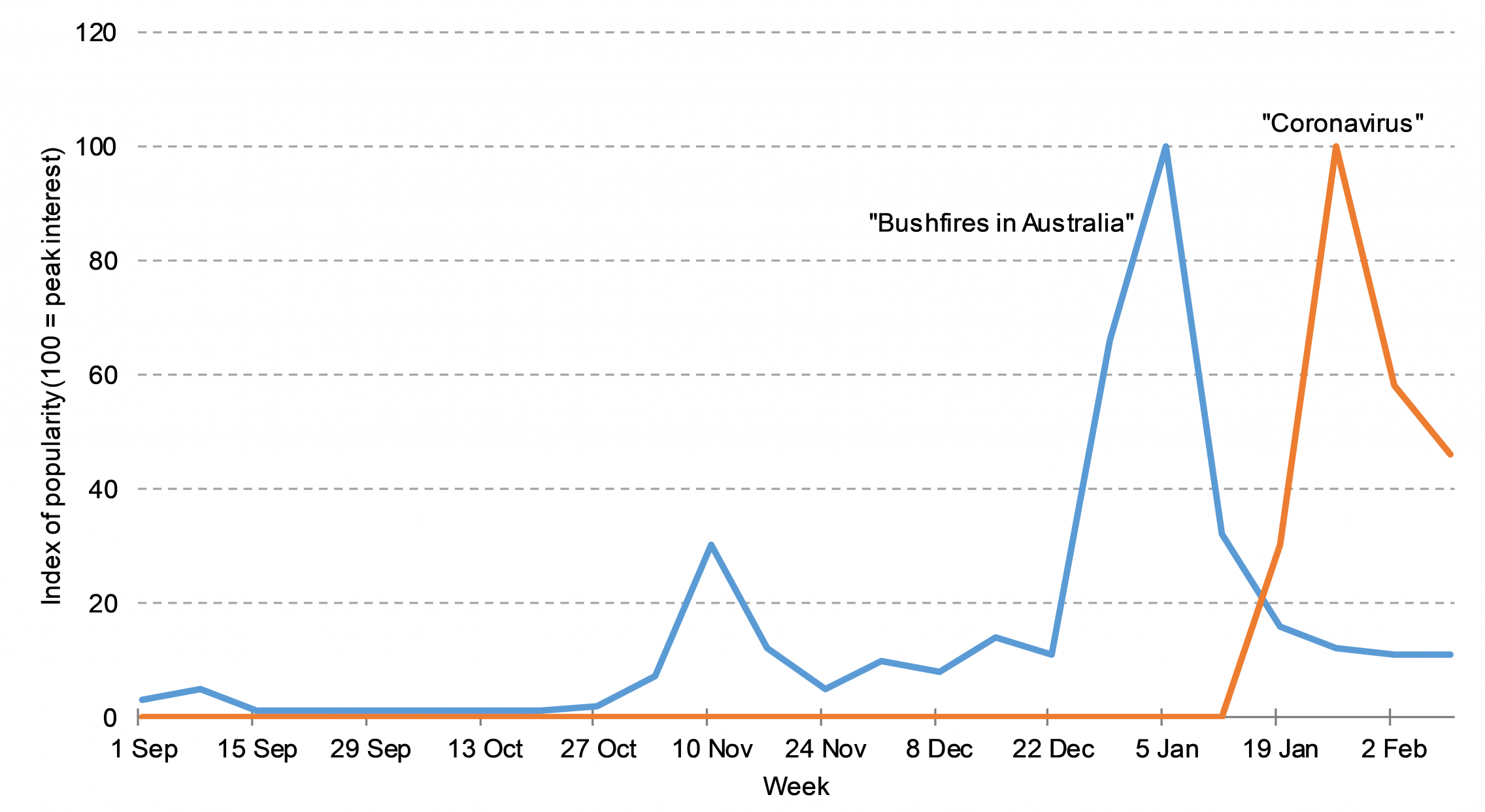Data Wrap - labour conditions still weak despite fall in unemployment

In this edition of the SA Data Wrap: a fall in unemployment hides ongoing labour market weakness; still no improvement in wage growth; and overseas arrivals data indicates inbound tourism held up well in December prior to the expected impact of bushfires.
Discouraged workers bring down the unemployment rate
South Australia’s trend unemployment rate fell by 0.1 percentage points to 5.9 per cent in January 2020, according to the Australian Bureau of Statistics’ latest Labour Force Survey, released this morning. However, the headline unemployment rate masks ongoing weakness in South Australia’s labour market performance.
While the total number of unemployed persons in South Australia fell by approximately 900 people in January, overall employment also fell by around 900 people. A fall in unemployment amidst lower employment (which should drive up unemployment) indicates that people have been discouraged from the workforce. This effect is measured by the labour force participation rate, which fell by 0.1 percentage points to 62.4 per cent in January.
Total employment in South Australia has been gradually declining since mid-2019 such that the level of employment in January 2020 (848,100 people) was effectively unchanged from a year earlier. An additional concern is that full-time employment fell by 1.7 per cent over this period, indicating that overall employment levels have only been maintained by a shift to part-time employment, which has negative implications for labour incomes and consumer spending.
With employment failing to grow let alone keep pace with population expansion over the last year, labour market conditions have weakened noticeably in South Australia. However, this is not apparent from the unemployment rate, which remained unchanged at 5.9 per cent between January 2019 and 2020 due to the aforementioned discouraged worker effect. But it is apparent from the state’s employment to population ratio, which provides a better gauge of overall labour market health. The state’s employment to population ratio has fallen quite noticeably over the past year, from 59.2 per cent to 58.7 per cent.
At the national level unemployment remained unmoved at 5.2 per cent in January. South Australia currently has the second-highest unemployment rate in the nation behind only Queensland (6.1 per cent). Tasmania (5.8 per cent) and Western Australia (5.7 per cent) also have relatively high unemployment rates at present, while unemployment remains quite low in New South Wales (4.5 per cent) and Victoria (5.0 per cent).
Still no improvement in wages growth
ABS wages data, published yesterday, showed no material improvement in wage growth in Australia toward the end of last year. The national Wage Price Index (WPI) rose by 0.5 per cent in the December quarter of 2019, in trend terms, which is unchanged from the rate of growth over the previous two quarters. The latest result continues a pattern of modest but steady growth that has been apparent for around five years now.
National wage growth over the past year moderated slightly. Through the year to the December quarter 2019, the trend WPI rose by 2.2 per cent, compared to 2.3 per cent over the previous year.
Wages in South Australia grew by 2.3 per cent over the past year (in original terms), a touch above the Australian rate, but unchanged from the previous year. Wage growth over the past year was strongest in Victoria (2.7 per cent), Tasmania (2.6 per cent) and the Northern Territory (2.5 per cent), and quite weak in Western Australia (1.7 per cent) and Queensland (1.8 per cent).
Visitor arrivals hold up despite bushfires
Earlier this week the ABS released overseas arrivals and departures data for December, providing some of our first insight into the impact of the summer bushfires on inbound travel to Australia. The latest data indicates minimal impact for December as a whole with visitor arrivals growing slightly. The total number of short-term visitor arrivals rose by 0.3 per cent to 797,200 trips in December 2019, and was up 2.6 per cent compared to a year earlier, in trend terms.
Part of the reason for the lack of an impact on visitor arrivals for December is that the bushfires did not reach a peak and gain widespread prominence until late December and early January. As the figure below shows, worldwide google searches for “bushfires in Australia” spiked in late December / early January. As a consequence, and given the significant lag that typically exists between planning and undertaking travel, particularly for holiday travel, one would expect that impacts on inbound travel will become more apparent in January and over subsequent months. And any such impacts will be magnified by the recent outbreak of coronavirus, which received peak interest in late January.
Relative Worldwide Popularity of Google Search Terms
“Bushfires in Australia” and “Coronavirus”, 1 September 2019 to 14 February 2020

Note: The index is measured against the peak interest for the specific search term, not against each other.
Source: Google Trends, https://trends.google.com/trends/
In terms of the state of intended stay for short-term visitor arrivals, for which data are only available in original terms, there was a 5.7 per cent increase in traveller arrivals for South Australia in December 2019 compared to December 2018 (nationally visitor arrivals rose by 1.9 per cent in original terms). There were also significant increases in visitor arrivals for the Australian Capital Territory (15 per cent), Western Australia (7.4 per cent) and Victoria (6.0 per cent). In contrast, visitor arrivals fell sharply for the Northern Territory (down 19 per cent) and eased in New South Wales (3.7 per cent). As the bushfires were concentrated in New South Wales, the latter could point to some regional impact on inbound travel resulting from the bushfires.
